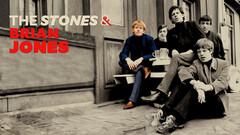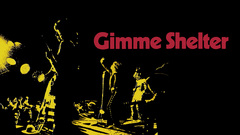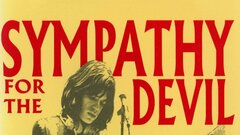For over three decades, Bill Wyman was the largely silent but stalwart bassist for the Rolling Stones, the self-described greatest band in the world and one of the most influential groups in rock and roll history. With drummer Charlie Watts, he laid down the blues- and soul-influenced rhythm for all of their enduring hits between 1963 and 1990, and established himself as one of the foremost bass players in the business. However, Wyman was also a composer and band leader in his own right, and after decades of playing in the background with the Stones, he left the group in 1990 to pursue a variety of careers, including frontman for his own band, the Rhythm Kings, as well as author, photographer and amateur archaeologist. His legacy, however, remained as a member of the Rolling Stones, whose popularity remained largely untouched after four tumultuous decades.
Born William George Perks in the South London district of Lewisham, England on Oct. 24, 1936, he was one of five children born to bricklayer William Perks and his wife, Molly. Raised in the tough Sydenham borough, his early years were marked by extreme poverty, which he chronicled in a series of journals he began keeping shortly after World War II and maintained throughout his life. His connection to music began as a boy when he took piano lessons, but his father insisted that he take a job with a local bookmaker to help support the family.
After completing his national service with the Royal Air Force, Wyman married his first wife, Diane Cory, in 1959, and worked as a carpenter to support her and their newborn son, Stephen, who was born in 1962. He revived his interest in music in 1960 after purchasing an electric guitar, but struggled to master the instrument. But after hearing a bass guitar during a 1961 performance by the popular comedy-pop group the Barron Knights, he fell for its sound and soon took it up as his instrument of choice. He began playing with a group called the Cliftons as Lee Wyman, a surname he had borrowed from a friend in the Royal Air Force, before settling on Bill Wyman.
In 1962, Wyman heard from Cliftons drummer Tony Chapman that a local R&B group called the Rollin' Stones were looking for someone to replace Dick Taylor as their bassist. Reportedly, he was hired because he owned his own instrument and amplifiers, but the truth was that Wyman was an exceptionally talented performer who had not only built his own fretless bass, but had mastered the "walking bass" line so popular in the blues records that the band idolized. Wyman also had a unique stage presence, not dissimilar to that of drummer Charlie Watts: while frontman Mick Jagger and guitarist Keith Richards were highly animated, Wyman maintained an air of reserved calm while holding his bass in a distinctive, almost vertical fashion.
Following chart hits in England in 1963 and America in 1965, Wyman soon rose to global fame as a member of the Rolling Stones, and remained their stalwart bass player for the next three decades. His contributions to their stable of hits were not as noticeable as Jagger's vocals or Richards' guitarwork, but his interplay with Watts maintained the soulful and astonishingly tight groove that helped to establish the band as one of the foremost rock outfits in the world. Both Wyman and Watts were self-trained players who anchored their respective playing in blues and jazz, which allowed them to keep time while lending small but impressive flourishes to each song. As a result, they were valued as one of the best rhythm sections in pop music.
However, Wyman frequently chafed at his second-string status in the band. His songwriting contributions were limited to two tracks in the Stones' vast catalog: the obscure 1967 song "In Another Land," which also featured his only lead vocals with the group, and 1975's "Downtown Suzie," which appeared on the compilation album Metamorphosis. In his 1990 autobiography Stone Alone and 2002's Rolling with the Stones, Wyman alleged that his contributions were more substantial, including the original riff to "Jumpin' Jack Flash." By the 1970s, he had tired of taking a backseat to Jagger and Richards and released Monkey Grip (1974), which made him the first member of the band to cut a solo record. A modest, blues-driven affair with an all-star lineup of players including Dr. John, Leon Russell, and Little Feat's Lowell George, it was a minor chart hit, and preceded a string of similarly underperforming solo efforts. Wyman also provided bass for the legendary "London Howlin' Wolf Sessions," a 1971 record that teamed the formidable blues giant with many of his English acolytes, including Eric Clapton and Steve Winwood.
Wyman began to explore film scoring and production in the 1980s, contributing music to 1981's "Green Ice," with Ryan O'Neal, as well as "Phenomena" (1985) and "Terror at the Opera" (1987), a pair of horror films by stylish Italian director Dario Argento. However, much of the news swirling around Wyman during the 1980s concerned his relationship with Mandy Smith, a 13-year-old London girl he met when he was 47 years old. Their relationship was the talk of the tabloids from 1983 until 1989, when Wyman married Smith after she turned 18. To no one's surprise, the union only lasted until 1991, but during this period, matters were further complicated when Wyman's son, Stephen, became engaged to Smith's mother.
The controversy largely overshadowed his musical efforts, which included a Top 40 hit on the American charts with "Willie and the Poor Boys," a 1985 super group album featuring Watts, Jimmy Page and Paul Rodgers of Bad Company. Following the 1989-1990 Steel Wheels tour, which marked the first live reunion of the Rolling Stones since a decade of in fighting throughout the 1980s, Wyman decided to retire from the group. He had tired of the road and, more significantly, of simply being the bass player in the group. He was replaced by studio musician Darryl Jones, and quietly resumed his own solo career while exploring a wide variety of other interests. He launched his own chain of successful bistros, the Sticky Fingers Café, which found favor with English diners in the late 1980s and 1990s, and pursued amateur archaeology and photography, later publishing books on both subjects. He later designed and patented his own metal detector for fellow relic hunters.
Wyman also remained active in music as the leader of his own band, the Rhythm Kings, a blues-rock group that counted such members of British rock royalty as Albert Lee of Ten Years After, Georgie Fame and fellow former Rolling Stone, Mick Taylor, among its members. The group toured frequently throughout England and released five albums, all with modest response from listeners. In 2009, he re-teamed with Watts and Ron Wood for a reunion of the Faces, where he filled in for the late Ronnie Lane.




































